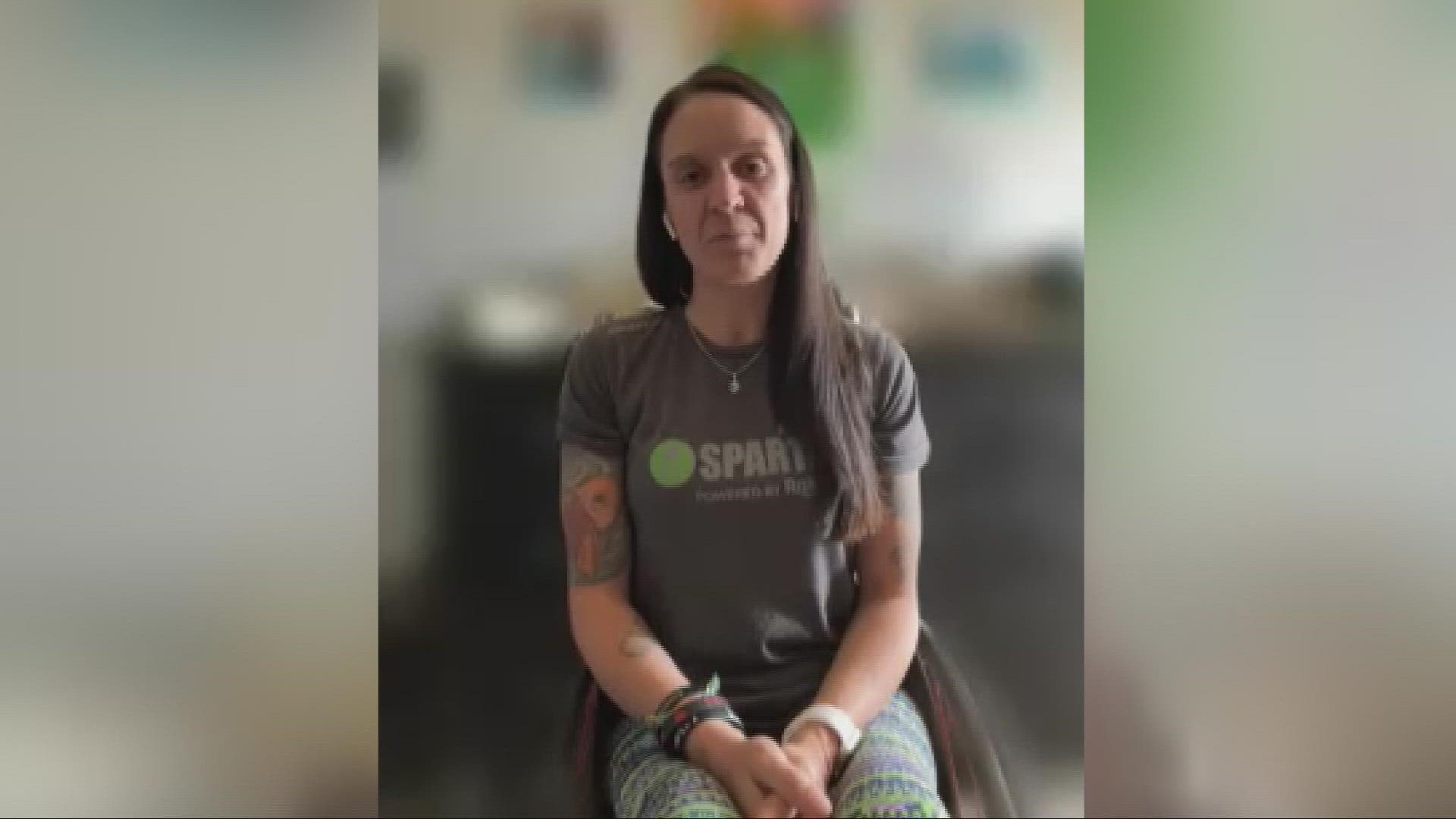SACRAMENTO, Calif. — Erika Bogan suffered a spinal cord injury that paralyzed much of her lower body—in a domestic violence incident 21 years ago. ABC10’s Becca Habegger got the opportunity to follow this athlete's journey up Mount Kilimanjaro.
With a peak of 19,341 feet above sea level, Mt. Kilimanjaro in Tanzania is the tallest mountain in Africa.
"It was both mentally and physically the most challenging thing that I've ever done, and that includes giving birth to three children,” said Erika Bogan.
Adaptive athlete Erika Bogan teams up with a non-profit called More Heart Than Scars, which helps people with disabilities compete in things like Tough Mudders and Spartan Races, using adaptive equipment and a lot of great teamwork.
When Sacramento documentary filmmaker Kody Leibowitz learned about Erika’s determination to climb Mount Kilimanjaro, he was instantly drawn in.
"When we first heard Erika's story in November, December of 2020, we were like, 'Wow, she wants to accomplish this and she wants to accomplish it to raise awareness? Okay, we're on board," said Leibowitz. "Let's figure out funding and let's see how we can get there and get a team together for this climb. Train hard - physically and mentally - to get to a position that we can actually do this.’”
The full group included a documentary crew of six, Erika and her team, plus dozens of porters and guides—who carried our luggage and helped Erika up the mountain.
"It was really important to me as well as really important to the rest of the team for people to see that, no, I was not just having my team carry me up the mountain," said Bogan. "I wanted to do as much independently as I possibly could... At certain parts of the mountain, I couldn't be in my wheelchair. And so the team had to carry me in, like, a piggy back. Being in that - as much as it did help and I'm grateful that we had it - towards the end of the climb, it became a torture device. My heart would palpitate anytime it was said that I had to get in it, so a lot of pain."
The team climbed to the top over the course of five days, climbing down in two.
“It's physically and mentally taxing, and it's hard to breathe at that altitude," said Leibowitz.
“Reaching the top – yeah - a very, very, very emotional moment," said Bogan.
She accomplished her goal, driven by a mission and message.
“I have lost countless friends - who also have physical disabilities - to suicide…Lack of access is huge," said Bogan. "When I say access, I'm not just talking about the good parking spaces. I'm talking about lack of access to, you know, mental wellness resources; lack of access to people who are knowledgeable in the different things that physically we deal with when living with a disability.”
“We want anyone that's watching this film to really get a better understanding of what it's like to have a disability; what it's like to live through an injury sustained through domestic violence; what it's like to accomplish a goal…If one person learned something from our film or one person, you know, wants to fight for advocacy for one of those things, then we did our job and the film did well," said Leibowitz.
If you or someone you know are suffering from domestic violence, there are many resources out there to get help.
DOMESTIC VIOLENCE SUPPORT RESOURCES:
- National Domestic Violence Hotline (24/7)
- Voice: (800) 799-7233
- National Human Trafficking Hotline
- Voice: (888) 373-7888
- National Sexual Assault Hotline (RAINN)
- Voice: (800) 656-HOPE (4673)
- California Coalition Against Sexual Assault (CALCASA)
- W.E.A.V.E.: Women Escaping a Violent Environment 1-866-920-2952
- RAINN: Rape, Abuse and Incest National Network
- NSVRC: National Sexual Violence Resource Center
- National Sexual Abuse Hotline 1-800-656-HOPE 1-800-656-4673



















